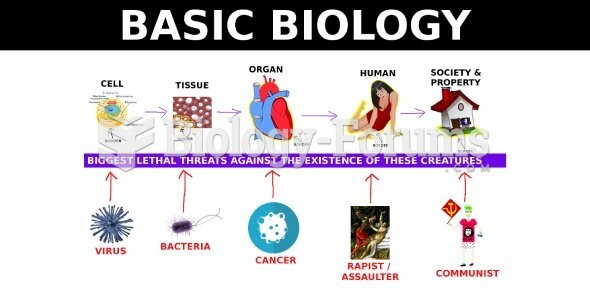|
|
|
In the United States, an estimated 50 million unnecessary antibiotics are prescribed for viral respiratory infections.
Adult head lice are gray, about ? inch long, and often have a tiny dot on their backs. A female can lay between 50 and 150 eggs within the several weeks that she is alive. They feed on human blood.
In 2012, nearly 24 milliion Americans, aged 12 and older, had abused an illicit drug, according to the National Institute on Drug Abuse (NIDA).
Vaccines cause herd immunity. If the majority of people in a community have been vaccinated against a disease, an unvaccinated person is less likely to get the disease since others are less likely to become sick from it and spread the disease.
Pregnant women usually experience a heightened sense of smell beginning late in the first trimester. Some experts call this the body's way of protecting a pregnant woman from foods that are unsafe for the fetus.
 Symbolic interactionists stress that a basic characteristic of humans is that they attach meaning to ...
Symbolic interactionists stress that a basic characteristic of humans is that they attach meaning to ...
 Two woodcuts from Darwin’s 1872 book, The Expression of Emotions in Man and Animals, that he used ...
Two woodcuts from Darwin’s 1872 book, The Expression of Emotions in Man and Animals, that he used ...





